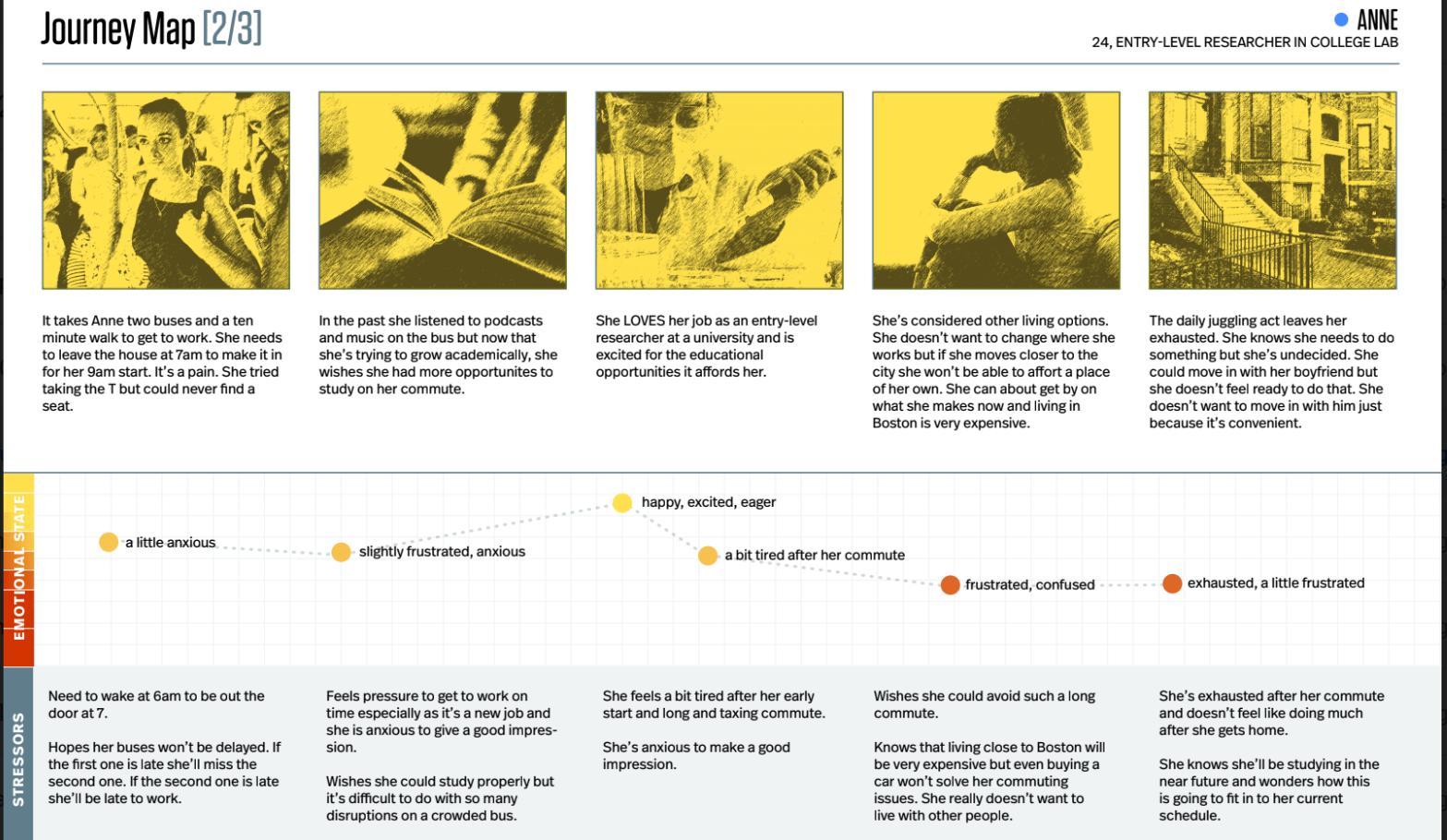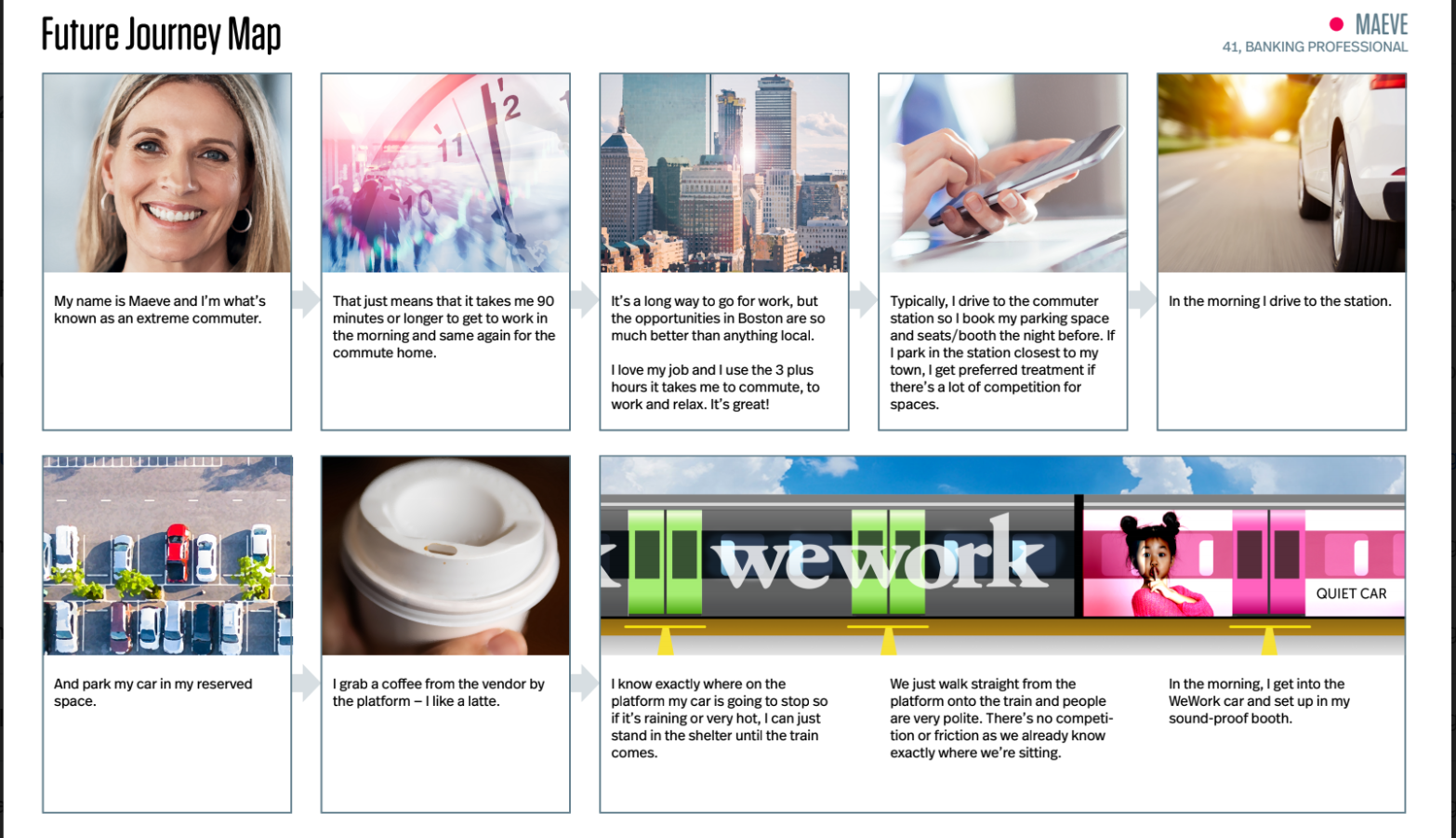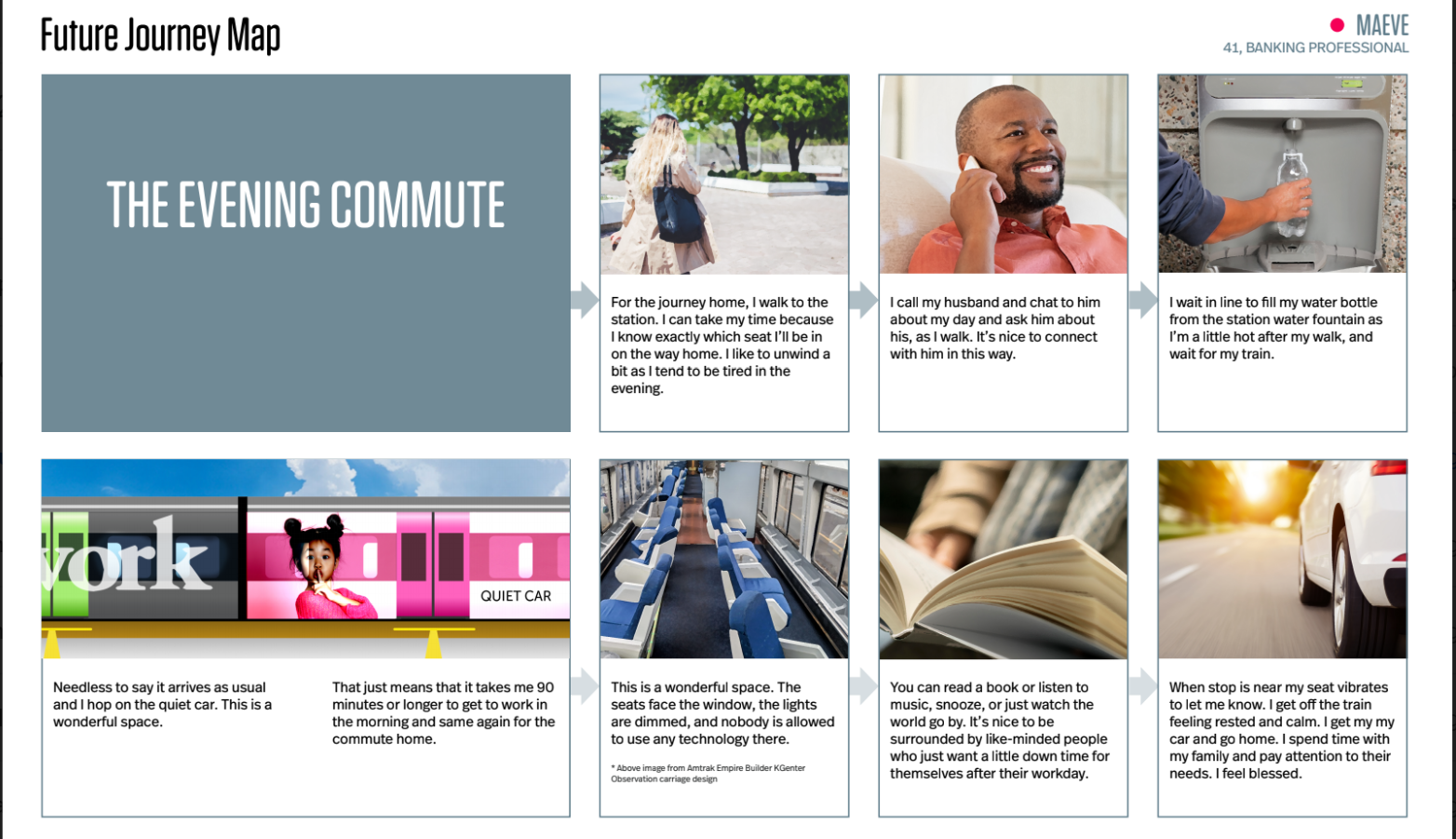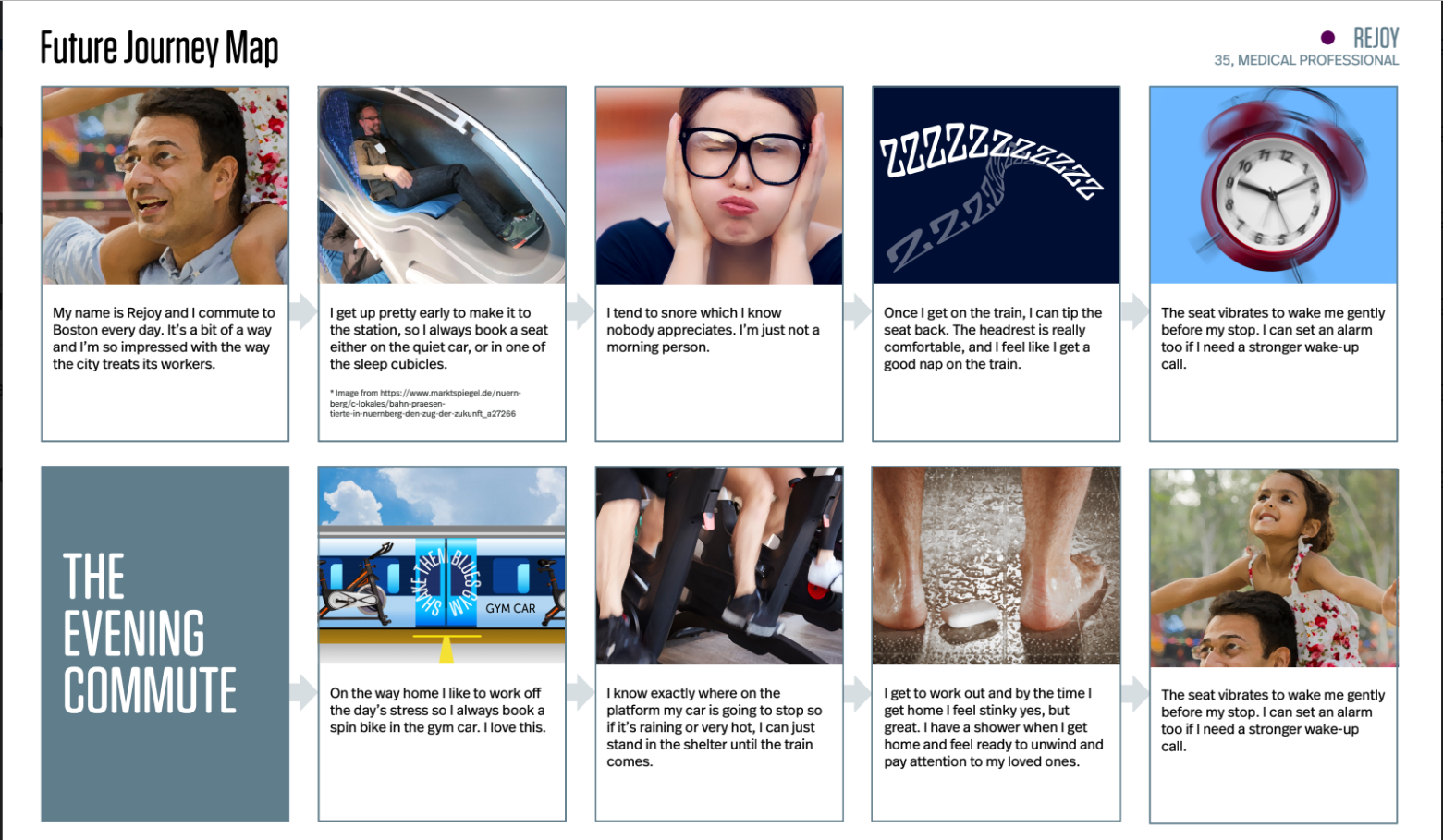Commuting is a daily activity and is vital for businesses and the economy. However, problems in the service abound. By redesigning a part of the system — the commuter rail— we aim to reduce the daily stressors, and create a service with considerable health benefits for commuters.
Top Features
● Variety of experience design research methods employed to fully understand the problem and potential solutions
● Comprehensive inventory of short-term, medium-term, and long-term solutions
● Creative and thoughtful integration of infrastructure, technological, and systemic improvements
Find all about the competition here | on the news | at Northeastern University
People are so immersed in their day-to-day lives that they often forget to take care of themselves. Work is the fulcrum around which most people plan their lives. Many business and companies are based in city centers where the cost of living has increased exponentially.
Therefore, many people choose to live in the surrounding areas, which means that they have to travel back and forth from home to work and vice versa.
Therefore, many people choose to live in the surrounding areas, which means that they have to travel back and forth from home to work and vice versa.
For this challenge, we elected to focus on how we might mitigate the negative health effects of commuting on extreme commuters around the Boston area. An extreme commuter is anyone whose commute one-way is 90+ minutes. How might we build relaxation and predictability into the everyday commute?
Research methods for design
● Exploratory research
● Participant and trace observations
● Focused interviews
● Personas
● Photo studies
● Scenarios
● Stakeholder maps
● User journey maps
● Evaluative research
● Participant and trace observations
● Focused interviews
● Personas
● Photo studies
● Scenarios
● Stakeholder maps
● User journey maps
● Evaluative research


Find all about the competition here | on the news | at Northeastern University
Key findings
Through our research we found that people find their commuting experiences stressful, which impacts their mood, productivity, and overall health. People complain about not having enough time to do things they like, or things that boost them with the right energy. Extreme commuters find themselves lacking the time they need to relax properly, so that they can develop and maintain the necessary activities and mindset to enhance to live well.
Through our research we also confirmed that the service fails to deliver on quite a number of basic expectations:
● not being reliable or running on time
● poor signage and communication
● no company communication on the length of the train and where it will stop
● too few carriages/very little space for heavy commuting times
● two separate apps — One for train times and one to buy tickets
● poor illumination of signage for station names in dusk or dark conditions
● very poor and unreliable wifi
● very basic or no amenities
● no way to ensure you have a parking space or seat
● poor signage and communication
● no company communication on the length of the train and where it will stop
● too few carriages/very little space for heavy commuting times
● two separate apps — One for train times and one to buy tickets
● poor illumination of signage for station names in dusk or dark conditions
● very poor and unreliable wifi
● very basic or no amenities
● no way to ensure you have a parking space or seat
Overall, the commuting experience impacts people’s health and well-being negatively. We plan our lives around the train schedules, adjusting not only eating habits, but also our personal routines. These adjustments cause people to desend into a negative feedback loop. This results in eat-on-the-go; sleeping poorly because they need to wake up early to take the trains to get to work on time; rushing and getting anxious; and returning home drained and irritated only repeat it all for the next day. There is little personal time to relax, go to the gym, or have quality time with their loved ones. Eating unhealthily, not exercising, not having enough or proper sleep causes high blood pressure, anxiety and stress levels that get worse over time thus negatively impacting people’s health.
Main goals
● To cut out many of the unnecessary situations that add to the stress and anxiety of the journey, by proposing a systematic approach to the commuting experience.
● To propose a set of redesigns embedded in a new commuting service concept, thus, improving overall well-being and health.
● To introduce situations that make the ride much more comfortable and enjoyable.
● To add a much-needed level of predictability into the journey.
Envisioning a healthier future




Read more about our proposed solutions and interventions.
Team members: Deirdre Nichonaill, Estefania Ciliotta, and Houjiang Liu